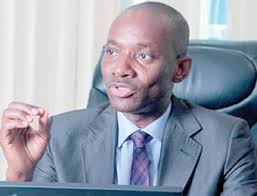From the next billing period in January, 2016, Nigerian consumers will pay more for electricity supply as the Federal Government has approved differential increases in tariff across the nation.
Announcing the new electricity tariffs Monday, the Nigerian Electricity Regulatory Commission (NERC) said the monthly fixed charges for all classes of customers have been abolished.
In the new tariff design, residential customers in category (R2), in the Federal Capital Territory (FCT), Niger, Nassarawa and Kogi states, for instance, which fall under the Abuja Electricity Distribution Company (AEDC) franchise area, who previously paid N14 per kilowatt hour, would now pay an increase of N9.60 making N23.60 per kilowatt hour.
Similarly, residential customers in Eko and Ikeja electricity distribution areas would get N10 and N8 increase respectively in their energy charges. The same situation goes for residential customers in Kaduna and Benin electricity areas who would see an increase of N11.05 and N9.26 respectively in their energy charges.
However, while residential customers in Abuja would no longer pay the N702 monthly fixed charge, residential customers in Eko and Ikeja electricity distribution areas would also no longer pay N750 fixed charges, even as residential customers in Kaduna and Benin distribution areas, would no longer pay the N800 and N750 fixed charges respectively.
For commercial consumers in C2 category in Ibadan and Enugu distribution companies. for instance, while they would no longer pay monthly fixed charges of N17,000 and N22,141, their energy charge will increase by N12.08 and N13.35 respectively.
Noting that abolishing of fixed charge was good news for consumers who have long asked for a more just and fair pricing of electricity, chairman of NERC, Dr. Sam Amadi, stated that the commission had promised to address all complaints against fixed charges through a regulatory process that promotes investments in the electricity industry without unfairly burdening electricity consumers.
Amadi added, “Although the new tariff regimes come with an increase in energy charges, all electricity consumers, residential as well as commercial, will no longer pay fixed charges, so their total bills will depend on the electricity they actually consume and may be reduced when they conserve electricity.”
Amadi further said the new tariff regime comes with renewed commitments by the Discos to rapidly improve the quantity and quality of electricity supply. These commitments, he said, are contained in service level agreements, which are based on the performance level agreements submitted by the new owners during the bid process.
-Leadership













